
Twenty years after his debut as an actor, Brazil's sweetheart Reynaldo Gianechini meets his mentor, legendary director José Celso Martinez Corrêa for a first reading of Plato's Phaedrus.
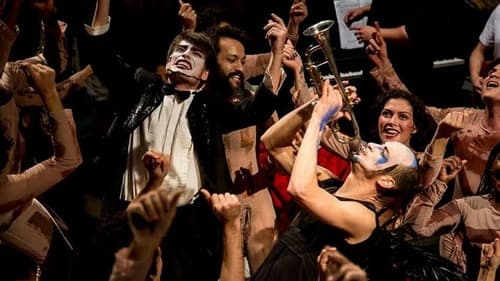
Self
In six decades, Teatro Oficina has done more than revolutionize theatrical language in the country: the aesthetic influence of José Celso Martinez Corrêa's company extends from Tropicalism to the renewal of Brazilian audiovisual languages from the 1960s onwards. The film revisits a story that it involves personalities such as Caetano Veloso, Glauber Rocha, Lina Bo Bardi, Chico Buarque and Zé do Caixão, brings together scenic art, ecology, architecture and sexuality, and mixes art and life in the search for a Brazilian based language.

Himself
Silvio Tendler goes through his life remembering the movements he was part of during the brazilian dictatorship and his adherence to socialism.
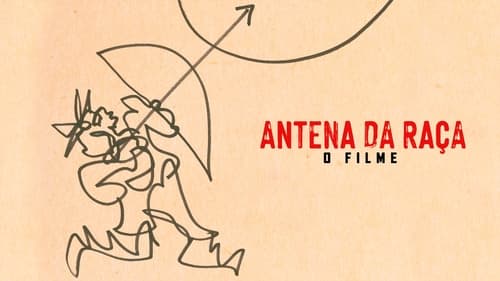
Self
The film comes to appropriate and re-discuss the Brazilian reality, based on the dialogues, excerpts and scenes from Glauber Rocha visceral films and his desire to "remove the masks", from ou third world saga. In this scenario where love and violence coexist in a state of inequality and often abandonment.

himself
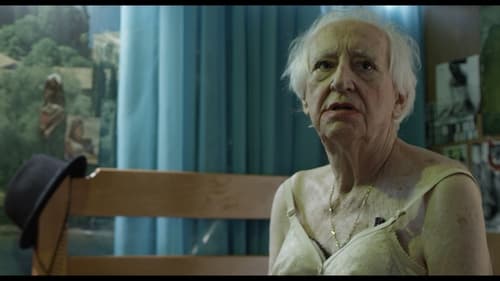
Horácio
Horacio, an old smuggler hiding from the law, lives in a surreal, baroque apartment with Petulia, his daughter, and Milton, his favorite thug. While he keeps his daughter locked up in her bedroom, Horácio flirts with his goon, for whom he has had repressed feelings for years. However, Milton's love for a mysterious woman, and Petula's attempts to free herself with the help of a former lover, clash with Horacio's tyrannical whims.
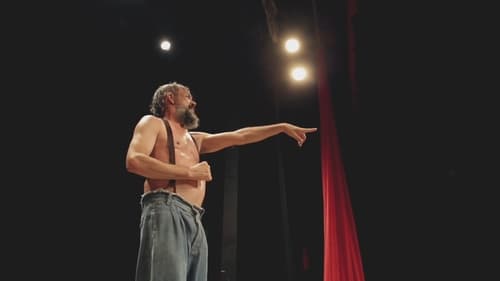
How Do You See Me? is a Brazilian documentary feature that entwines both experienced actors and beginners to explore the hardships and the happiness that are inherent to the job when detached from the glam and glitz of the gossip industry, creating a diverse and comprehensive mosaic of what it means to be an actor in Brazil, a country so full of contradictions. The film brings forward a reality that the masses usually don't get to know: the men and women moved by a deep passion for acting and touching people. With Julio Adrião, Matheus Nachtergaele, José Celso Martinez, Cássia Kis, Nanda Costa, Babu Santana, Luciano Vidigal and Letícia Sabatella, among others.

Self

Based on Oswald de Andrade's Anthropophagous Manifesto, Macumba was a hit with the audience that participated and interacted more with the work at each presentation.

Director
Based on Oswald de Andrade's Anthropophagous Manifesto, Macumba was a hit with the audience that participated and interacted more with the work at each presentation.
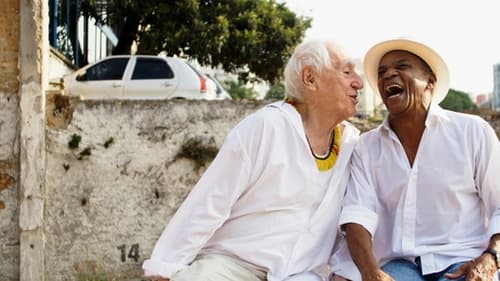
Self
This documentary investigates the aesthetic, political and existential trajectory of emblematic Black Brazilian actor Antônio Pitanga. He career spans over five decades, and he has worked with iconic Brazilian filmmakers Glauber Rocha, Cacá Diegues and Walter Lima Jr. He was a prominent figurehead and outspoken activist during the Brazilian dictatorship, a period of unrest in Brazilian cinema. Pitanga deep dives into the world of Antônio and the history of Brazil. The documentary was directed by his daughter Camila Pitanga, one of widely recognised faces in Brazilian television and cinema right now. The film is also a poem, and a tender ode to fatherhood.

Ded
Young directors are filming “The Exhibitionist” in the middle of a farm in a paradise-like region. The film poetically investigates the Brazilian soul, with the Amazon as the center of the world, reflecting on existential issues, the right to sexual freedom and individuality.

Himself
From the testimonies of Zé Celso himself, and excerpts from the play "Walmor Y Cacilda 64 - Robogolpe", which contains autobiographical elements, as well as from essays and scenes from older pieces by him, it is possible to know a little more about the life of the irreverent author. Playwright, director, actor and musician, Zé Celso began his career in amateur theater while still a student at the end of the 1950s. He "ate" the work of Oswald de Andrade and as an anthropophage, was one of Tropicália's founders.

A document of one of the greatest cultural events of Latin America in an innovative way, the film mixes documentary and fiction to pay homage to the artists of the contemporary Brazilian theater, who come together in the city of São Paulo every year to celebrate the coming of the spring. The fictional storyline shows the shooting of the documentary which is directed by a foreigner director and his Brazilian second-rate crew. They join forces to make a successful film based on the event.

Self
Set against the turbulent atmosphere of the 1960s, Tropicália is a feature length documentary exploring the Brazilian artistic movement known as Tropicália, and the struggle its artists endured to protect their right to freely express revolutionary thought against the traditional Brazilian music of that time.
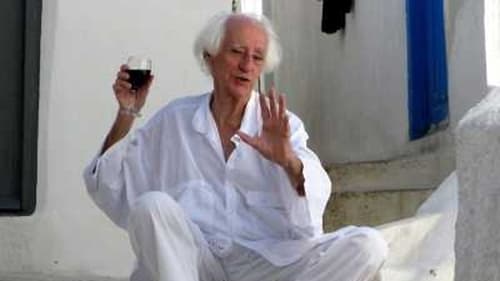
Himself
A film that mixes labyrinthine recent testimonies and historical images of the career of the tropicalista director, actor and playwright Zé Celso, of Teatro Oficina, one of the greatest personalities of the Brazilian arts of all time. The documentary acquired its main verb in four trips to key points in the trajectory of Zé: Bahia badlands, Cururipe Beach in Alagoas (where Bishop Sardinha was devoured), Epidaurus and Athens in Greece and his apartment in São Paulo.
![Zé[s]](/assets/images/no-backdrop.png)
A cosmic-semantic coincidence. Ze, Theater, Workshop. Zé Celso Martinez Corrêa, director of Teat (r) o Oficina Uzyna Uzona, from São Paulo. Zé Perdiz, a mechanic from Brasília whose workshop is transformed into a theater. Parallel lives. Cinematic encounter.

The crossing of generations under the influence of military dictatorship and political openness. Documentary highlights the role of the organizers of the March for the Family with God for Freedom in 1964. Based on stories of life under the military dictatorship, stories and reflections of people who had a significant participation in that period, whether for or against the coup.
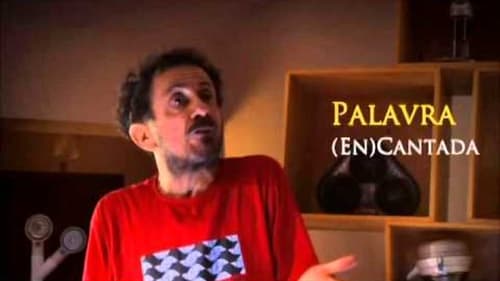
Self
Palavra (En)Cantada makes a journey in the history of the Brazilian songbook with a look at the relationship between poetry and music, sewing testimonials of great names of our culture, musical performances and amazing research of images.
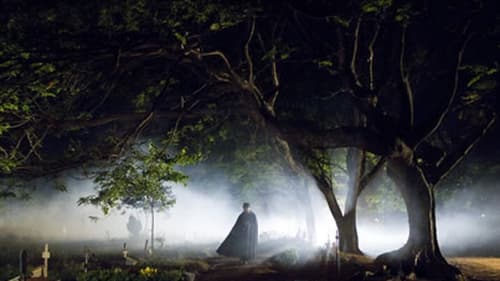
Mistificador
After 40 years in a cell for the mentally ill, Coffin Joe is finally freed. Back on the streets, the sadistic gravedigger is set on fulfilling that for which he was imprisoned: find the woman who can give him the perfect child. During his wanderings through the city of São Paulo he leaves behind a trail of horror as he faces unnatural laws and popular beliefs.

Documentary on "Antonio das Mortes", Glauber Rocha's 1969 film.

Writer
Dedicated to "all the power of the Un-massacre of Art and to the effects of the Trans-Human power of the Crowd," the staging of the last part of the book deals with the fourth and last expedition by the Brazilian National Army to the Northeastern "sertão." 12 thousand soldiers, cannons, and modern weapons where deployed, together with modern strategists such as Marshal Bittencourt who, for the first time in the history of the Brazilian Army, established an operational base away from the front, from where he commanded the maneuvers that General Arthur Oscar and his deputy, the blood-thirsty General Barbosa, executed. The play shows the end of the War of Canudos, which resulted in the massacre of the sertanejos, the death of Antônio Conselheiro himself (who went to meet God), and the destruction of the citadel.

Director
Dedicated to "all the power of the Un-massacre of Art and to the effects of the Trans-Human power of the Crowd," the staging of the last part of the book deals with the fourth and last expedition by the Brazilian National Army to the Northeastern "sertão." 12 thousand soldiers, cannons, and modern weapons where deployed, together with modern strategists such as Marshal Bittencourt who, for the first time in the history of the Brazilian Army, established an operational base away from the front, from where he commanded the maneuvers that General Arthur Oscar and his deputy, the blood-thirsty General Barbosa, executed. The play shows the end of the War of Canudos, which resulted in the massacre of the sertanejos, the death of Antônio Conselheiro himself (who went to meet God), and the destruction of the citadel.

Director
From 2000 to 2007, Teat(r)o Oficina Uzyna Uzona worked on the staging of Euclides da Cunha's epic book, Os Sertões, which describes the 19th Century War of Canudos in the Brazilian "sertão," lead by Antônio Conselheiro. The final result was a pentalogy of plays. This forth play deals with the cause of the war, when a judge from Juazeiro stopped a shipment of wood that was paid for from being delivered for the construction of the New Church of Canudos. Three expeditions were sent by the National Army and defeated, the last one commanded by the famous Colonel Moreira César. The Army faced the humiliation of soldiers deserting and running away, and the impaling of Colonel Tamarindo. He ended up being the main character in a macabre installation on the road to Canudos, created by the Jagunços (thugs from the sertão) and the Mandrakes to intimidate new expeditions.

Writer
From 2000 to 2007, Teat(r)o Oficina Uzyna Uzona worked on the staging of Euclides da Cunha's epic book, Os Sertões, which describes the 19th Century War of Canudos in the Brazilian "sertão," lead by Antônio Conselheiro. The final result was a pentalogy of plays. This forth play deals with the cause of the war, when a judge from Juazeiro stopped a shipment of wood that was paid for from being delivered for the construction of the New Church of Canudos. Three expeditions were sent by the National Army and defeated, the last one commanded by the famous Colonel Moreira César. The Army faced the humiliation of soldiers deserting and running away, and the impaling of Colonel Tamarindo. He ended up being the main character in a macabre installation on the road to Canudos, created by the Jagunços (thugs from the sertão) and the Mandrakes to intimidate new expeditions.

Meu Velho
Weatherman from a TV network goes back to his hometown, Vale da Rocha, a place in Northeast Brazil, devastated by the drought. He is forced to face the geographic elements and his own memories.
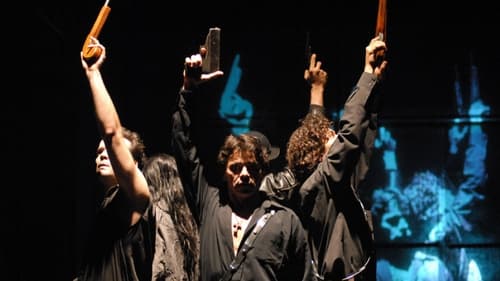
Director
Dedicated to "the creation of an heroic and anti-heroic attitude of those that go to war and say: Farewell Man!," the theatrical version of the second movement of the second part of Os Sertões presents the passage from the re-volted man to the trans-man, creator of an alternate possibility for human adventure on Earth. From the story of Antônio Conselheiro, all theater relives its seminal death: a common man who, out of love, transmutes into an anti-messianic leader, gathering a legion of "sertanejos," roots of solidarity in the inlands of Bahia who, in a community effort, raise dams, churchs, and cemiteries. The community had at one point 25 thousand inhabitants, in its days the second largest city of Bahia. Capuchin Friars attempted to disperse the people of Canudos "diplomatically." Their denial to obey the official religious order led the Evangelist Friar to damn the followers of Antônio Conselheiro in the name of Jesus. The City prepares for war.

Writer
Dedicated to "the creation of an heroic and anti-heroic attitude of those that go to war and say: Farewell Man!," the theatrical version of the second movement of the second part of Os Sertões presents the passage from the re-volted man to the trans-man, creator of an alternate possibility for human adventure on Earth. From the story of Antônio Conselheiro, all theater relives its seminal death: a common man who, out of love, transmutes into an anti-messianic leader, gathering a legion of "sertanejos," roots of solidarity in the inlands of Bahia who, in a community effort, raise dams, churchs, and cemiteries. The community had at one point 25 thousand inhabitants, in its days the second largest city of Bahia. Capuchin Friars attempted to disperse the people of Canudos "diplomatically." Their denial to obey the official religious order led the Evangelist Friar to damn the followers of Antônio Conselheiro in the name of Jesus. The City prepares for war.
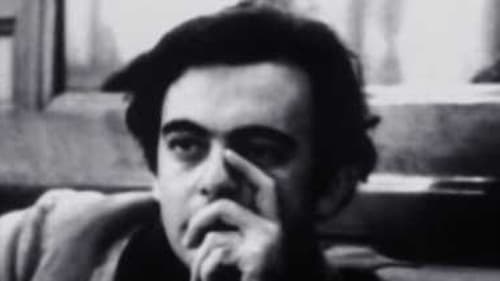
Documentary about Brazilian filmmaker Glauber Rocha, one of the most important names in the Cinema Novo, with interviews with some of his friends and colleagues.
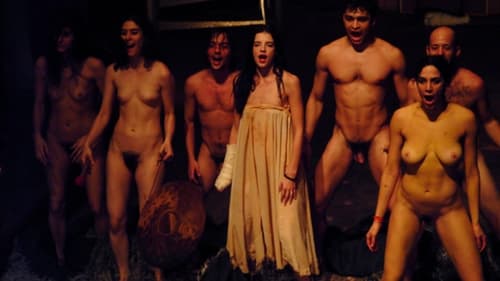
Writer
The second play, O Homem I, is about the vigorous embrace of the winner, the Celtic European Colonizer, copulating with the defeated, with the slaves from the ships, forming the "Typeless-Brazilian" type. Mixtures of all kinds find their space in the stage in the surprising miscegenation already present in the cast and crew of Teatro Oficina itself. It is the story of the Brazilian Man, the Man of the Country abroad interbreeding with the Country inside, until the Revolt against the very idea—imposed and imported—of man, with the appearance of Zarathustra Antônio Conselheiro.

Director
The second play, O Homem I, is about the vigorous embrace of the winner, the Celtic European Colonizer, copulating with the defeated, with the slaves from the ships, forming the "Typeless-Brazilian" type. Mixtures of all kinds find their space in the stage in the surprising miscegenation already present in the cast and crew of Teatro Oficina itself. It is the story of the Brazilian Man, the Man of the Country abroad interbreeding with the Country inside, until the Revolt against the very idea—imposed and imported—of man, with the appearance of Zarathustra Antônio Conselheiro.
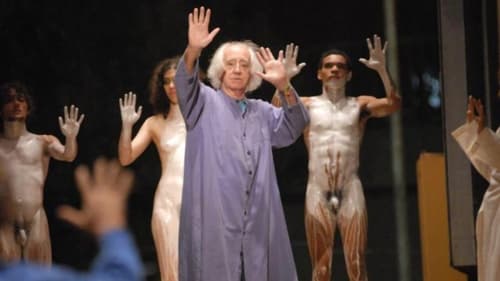
From 2000 to 2007, Teat(r)o Oficina Uzyna Uzona worked on the staging of Euclides da Cunha's epic book, Os Sertões, which describes the 19th Century War of Canudos in the Brazilian "sertão"(backlands). The result was the pentalogy of plays: A Terra (2002), O Homem I (2003), O Homem II (2003), A Luta I (2005), and A Luta II (2006). This first play is a carnival opera, the actors are the earth, the vegetation, the wind, the animals, the rivers, the drought. It reveals the most intimate secrets of nature, that also vibrate in the human and trans-human arteries. This work enriched by the experience that the subsequent works brought gains an updated insight into the human interference in the environment. Destructive power is proportional to financial power, and the discussion about the way space gets occupied was brought to the forefront, including the real-estate boom that surrounds today not only Teatro Oficina, but the whole world, now hotter and more arid.

Director
From 2000 to 2007, Teat(r)o Oficina Uzyna Uzona worked on the staging of Euclides da Cunha's epic book, Os Sertões, which describes the 19th Century War of Canudos in the Brazilian "sertão"(backlands). The result was the pentalogy of plays: A Terra (2002), O Homem I (2003), O Homem II (2003), A Luta I (2005), and A Luta II (2006). This first play is a carnival opera, the actors are the earth, the vegetation, the wind, the animals, the rivers, the drought. It reveals the most intimate secrets of nature, that also vibrate in the human and trans-human arteries. This work enriched by the experience that the subsequent works brought gains an updated insight into the human interference in the environment. Destructive power is proportional to financial power, and the discussion about the way space gets occupied was brought to the forefront, including the real-estate boom that surrounds today not only Teatro Oficina, but the whole world, now hotter and more arid.

Vendedor
The life of Brazilian actress Odete Lara, muse of the movement called Cinema Novo in Brazil, who exchanged stardom for a quiet and religious life.

Dentista

Screenplay

Director

Himself
Hunting Season deals with the wave of homosexual murders that plagued São Paulo and Rio de Janeiro in the 1980s. With street statements and cultural and artistic figures such, such as Zé Celso, Jorge Mautner, Roberto Piva and others.

Tropicália was a Brazilian cultural movement that occurred between 1967 and 1968, inspired by Oswald de Andrade's anthropophagic ideals, pop art and the concretism. Twenty years later, this film revisits the movement and shows that Tropicalismo will never die.

Director
Filming of the historical montage of Oswald de Andrade's play, where decadent millionaires, depraved children, corrupt and implacable capitalists are the characters interpreted by the Grupo Oficina, in a celebrated theatrical performance from 1967, fundamentally recorded in 1971 and released only in the 1980s.

Self

Director
Filmed in 16 mm, 25 (Vinte Cinco) is a production that involved the collaborative effort from people from Brazil, Mozambique, Portugal and France. It follows the decolonisation process of Mozambique (the aftermath of the colonial war and of the fall of the fascist dictatorship in Portugal, which collapsed on the 25th of April 1974) and the geopolitical organisation of both Africa and Mozambique (that became independent in the 25th of June, 1975.)

A$$untina of the Amerikas is a musical comedy of a prostitute that, in 24 hours, wakes up, fights her mother, puts her son in anarchy, has a date with Santa Claus, a blue bear and two girlfriends. Then she finally meets her old millionaire lover. They spend their time to talk about everyday life and make love. Based on the novels of Fernando Henrique Cardoso and Wilhelm Reich.

Director
Documentary based on archive material focusing on the dictatorial regimen in Portugal and its fall with the "Revolução dos Cravos" (Carnation Revolution), in 1974, after 48 years of Salazarism.

Writer
While waiting for directions, two revolutionaries hide in a church, where they meet a woman who wants to have a son with one of them.
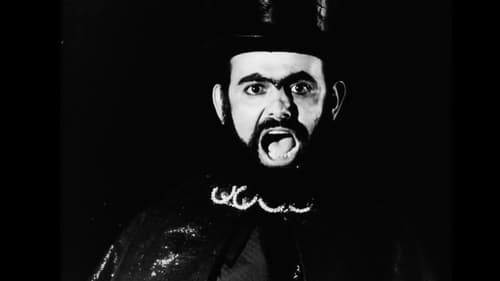
Psychiatrist experiments LSD on 4 volunteers, to investigate Coffin Joe's influence over them. Each patient presents a different reaction, involving sex, perversion and sadism.

(segment "Colagem")
Film in four segments: "Colagem", "Balanço", "Bandeira Zero" and "Sexta-Feira da Paixão, Sábado de Aleluia", having in common a strongly allegorical and gross protest tone in the approach of its subjects.














![Zé[s]](/assets/images/no-backdrop.png)























